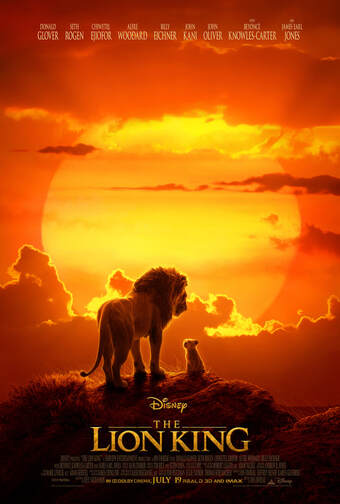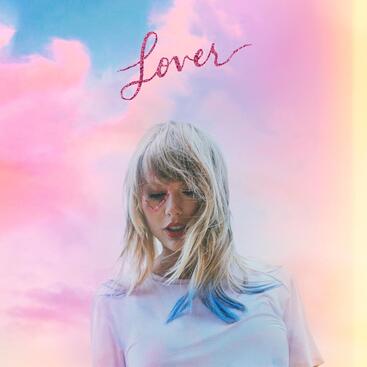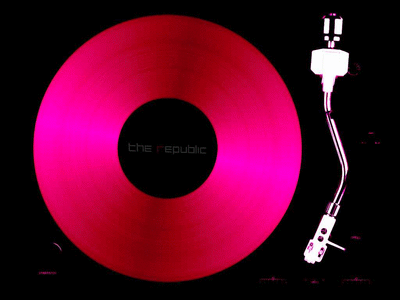
Film remakes already have plenty to live up to without having to make up for the shortcomings of a previous reboot. Knowing this didn’t keep me from expecting more from Disney’s live-action version of The Lion King, after their endeavor with Aladdin let me down though. The Guy Ritchie-directed Aladdin offered an empowered Princess Jasmine, but other changes and missed CGI (computer generated imagery) opportunities left me feeling annoyed and discontent (you can read my full review here). The Lion King had the added task of setting things right.
In the (unlikely) event that you have no idea what The Lion King (1994) is about, it’s kind of a coming of age tale with lots of anecdotes about life stages and how we’re all connected (so, imagine a child-appropriate NBC’s This is Us). Cub Simba (JD McCrary) is the heir to his father Mufasa’s (James Earl Jones; I'm so glad he was able to do the project, no one else would be right) throne, and his disgruntled uncle Scar (Chiwetel Ejiofor) is far from thrilled. Scar concocts a murderous plot with exiled hyenas, so he can rise to power. Simba narrowly escapes, but it’s assumed he’ll die in the wilderness. Meerkat Timon (Billy Eichner) and warthog Pumbaa (Seth Rogen) care for him until adulthood. Simba’s old friend (and eventual spouse) Nala (Beyoncé) crosses his path and relays how Scar ravaged the kingdom of natural resources. Simba (then voiced by Donald Glover) is resistant to the idea of returning home, and feels responsible for Mufasa’s death. Various happenings lead to an identity wake up call for him, and he ultimately challenges Scar’s rule.
Director Jon Favreau’s 2019 The Lion King (screenplay by Jeff Nathanson) is mostly faithful to its root text. Many revisions have a clear objective and/or magnify story elements. If there was going to be any similarity to Ritchie’s Aladdin, it could be with strengthening the presence of female leads. Nathanson gives Nala a more nuanced and empowering arc. We see her develop and hash out a grudge with principal hyena Shenzi (Florence Kasumba), and ascend to primacy among the lionesses. She tries to respect the elders in the pack, but becomes impatient with their docility with Scar. She arouses them to fiercely take back their land. Beyoncé does surprisingly well blending in with the rest of the voice cast (Shahadi Wright Joseph portrays young Nala). I’ll admit I doubted her ability to do this, considering her distinctly deep and American Southern accent. There are times where you can tell she’s being careful with her enunciation, but it isn’t distracting.
Scar and Shenzi were given extra shading. 1994’s Scar is venomous, but his haughtiness and facetiousness put an attracting glimmer around his shadows. In 2019, he’s reserved, less saucy and his quips are bitter jabs, as opposed to humorous. Ejiofor brings Scar’s acidity and boiling resentment to the surface with his breathy and distressed delivery. Unreciprocated affections are tacked on to the list of things Scar is peeved about, as an infatuation with Mufasa’s wife Sarabi (Alfre Woodard) is intriguingly included. Previously, Shenzi was ill-intentioned, but too uproarious (as only Whoopi Goldberg, who was behind the mic then, can be) to hate. Her update is decidedly diabolical, and no matter is a laughing one. What prevents these character modifications from being a total buzz kill is their apparent purpose. Scar and Shenzi (and her troupe) are unmistakably ominous and scary. The hyenas are convincing as a threat, whereas before, you couldn’t take them seriously. This effect is why you might tolerate Scar’s divo snobbery and some of the hyena banter going missing.



 RSS Feed
RSS Feed